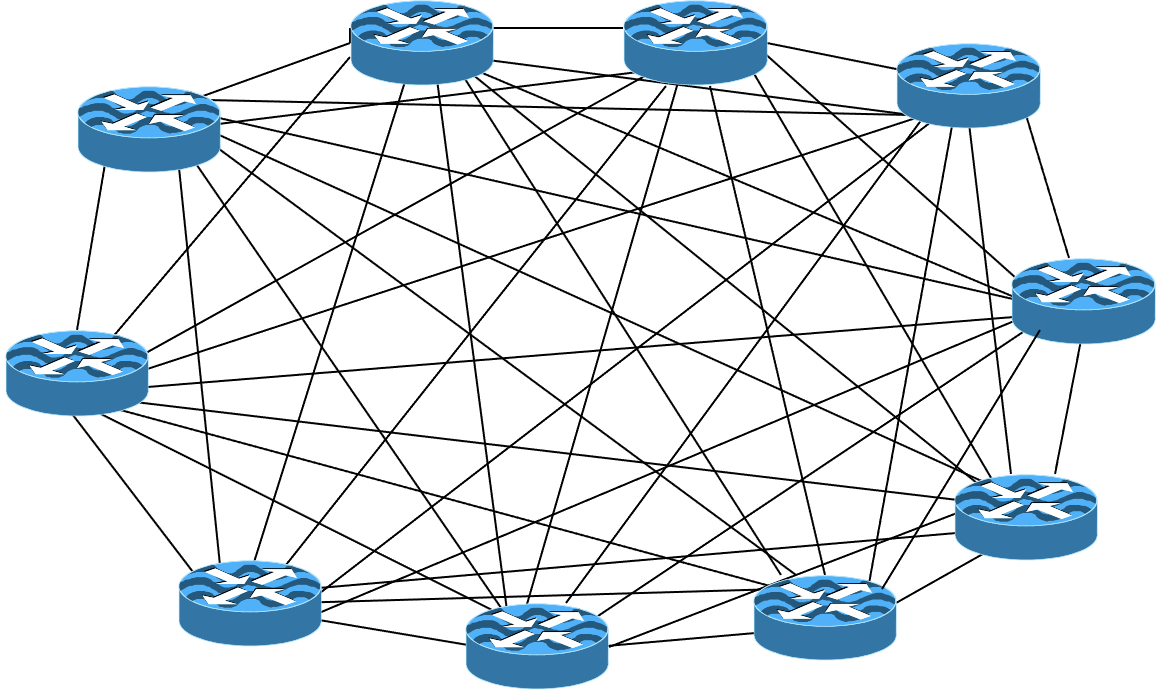This is an old revision of the document!
IXP Route Server
A Route Server has all the features of a Route Collector, but also announces routes to participating IXP members according to their routing policy definitions.
They are implemented using the same specification as for a Route Collector.
Purpose
The main function of a Route Server is to scale the route distribution at Internet Exchange Points. Rather than each participant at an IXP having to peer with every other participant, they only peer with the IXP's Route Server(s), thereby only needing to maintain the BGP session(s) to the Route Server(s).
Without a Route Server, the BGP mesh at an IXP would look similar to the following diagram:
It is important to note that the Route Server is not involved in packet forwarding at the IXP, nor does it carry any of the IXP's traffic. The Route Server takes advantage of a BGP feature known as “third party next-hop” where by the IP address of the “next router” (where the prefix was heard from) is unchanged when it is passed on to the other peers on the same LAN.
The Route Server also does not insert its Autonomous System Number into the AS Path. This means that, to all intents and purposes, it appears as though the IXP members are peering directly with each other, as their AS Numbers appear immediately adjacent in the AS Path.

